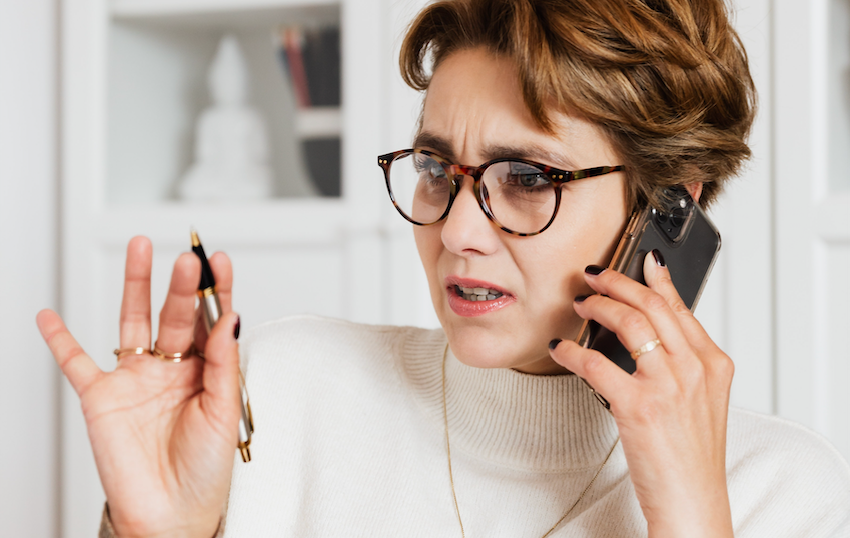Biotin or vitamin H is an essential vitamin that converts food into energy. It does this by breaking down carbohydrates and proteins into fuel for the body to use. Another vital role biotin plays is helping to keep hair, skin, and nails strong and healthy. Most people receive their biotin through the foods they eat but can become biotin deficient. According to science, a biotin deficiency is rare, but it can happen. When it does, people take a biotin supplement.
In the last few years, taking biotin to improve hair quality or strengthen nails has become popular. With its popularity has come some controversy. As with all vitamin supplements, many people have become concerned that vitamin supplements aren't necessary or healthy. It's natural to ask, "Is biotin bad for our health?" The short answer is no, it isn't, and here's why.
How does biotin work in the body?
As an essential vitamin, your body needs biotin as a nutrient. It doesn't produce the substance but instead derives the biotin magic through foods, such as salmon, milk, and nuts. Biotin is a cofactor or building block for energy creation and energy metabolism. (1)
Another factor of biotin is that it's water-soluble, and your body removes any excess amounts through urine. Expelling extra amounts makes an overdose highly unlikely and significantly lowers the risk factor for taking a biotin supplement. Your body holds onto what it needs and discards what it doesn't.
Are there any side effects?
If you take biotin in the recommended dose, you usually won't have any side effects. The Mayo Clinic says that people taking 10 micrograms (mcg) causes no adverse effects. (2) Other studies show that higher amounts of over 10 mcg and even up to 200 mcg didn't cause side effects either. (3) However, there can be minor side effects for some people when taken in large doses, including:
- nausea
- cramping
- diarrhea
In addition to these minor adverse effects, biotin may interact poorly with some medications and create false lab results.
Biotin and medications
Men and women taking anticonvulsants to treat epilepsy may develop a biotin deficiency. Scientists are unsure why but epileptic drugs sometimes lower biotin amounts in the body, leading to a deficiency. (4)
One possible reason theorized is that impairs biotin's ability to break down carbohydrates and protein into smaller molecules for energy in the gut. If you're taking medications for epilepsy or other health concerns and believe you're biotin deficient, speak to your doctor. While there's no specific test for biotin levels, you may have symptoms for low levels.
Biotin and false lab results
When you test for specific levels of hormones while taking biotin, you may come out with a false positive for particular health conditions. The two most common ones are Graves's disease and hypothyroidism.
Biotin can also cause lab results to falsely show high levels of testosterone, cortisol, and estradiol (estrogen). On the other side, it can incorrectly show low levels of the follicle-stimulating hormone (FSH) and luteinizing hormone. Before undergoing hormone lab tests, you may need to stop taking biotin.
What are the health benefits?
Biotin can have some powerful benefits. While taking the supplement helps men and women in different ways, here are some of the most common reasons people take biotin.
Strengthens nails
If you're suffering from brittle nails, biotin may help you. While research in this area is small, one study showed that 63% of people taking 2.5 mg of biotin daily improved nail strength. (5) The reason for this may have to do with biotin's ability to generate positive cell growth and assisting amino acid metabolism, both critical for preventing brittle nails.
Boosts hair growth
Thinning hair can be an issue for both men and women. When you have hair loss, you may feel concerned or embarrassed. Women, in particular, search out keratin treatments to boost hair thickness and to stimulate growth. Keratin is a protein molecule found in the hair that provides the structure of the hair. Biotin is a building block for keratin.
When you have low levels of biotin, scientists know this results in hair loss. The catch is that some people believe that biotin boosts hair growth, and others say there needs to be more research. However, there are two small studies by the same researcher that showed significant hair growth and less shedding for the 60 women participating in the study. (6, 7)
Softens and smooths skin
When you have a biotin deficiency, your skin may develop rashes, cuts along the mouth, and produce cradle cap. It's thought that since biotin helps nourish the skin through its amino acid production, taking a supplement helps soften and smooth the skin's surface. While research is still in its early stages, many men and women take biotin for clearer skin.
What is the recommended dose?
The recommended daily dose (RDA) depends on your overall health, age, and sex. Since a true deficiency is rare, the Food and Drug Administration (FDA) doesn’t have an official RDA, but there are guidelines recommended by the National Health Institute (NHI). (1)
For men and women over age 10, a dose of 30 mcg per day is recommended. Some supplements come in much higher doses, and when taken at high levels, the minor side effects may occur.
How to boost biotin levels?
While you can boost biotin levels naturally through eating a healthy diet, a dietary supplement may give you the insurance you need. Modern life is busy, and sometimes it's hard to eat a balanced diet or have the time to worry about whether you're getting enough biotin. If you're suffering from thin hair, brittle nails, or scaly skin, using a biotin cream ensures you're boosting your levels.
Bottom Line
The question of whether biotin is bad for your health is an important one. You don't want to take anything that harms your body and causes side effects. In the case of Biotin, when you take the vitamin in the recommended levels by the NHI or follow your doctor's orders, the chances of it being bad for your health are small. Minor side effects can happen, but science shows that this result has to do with taking too much, not due to biotin itself.
- https://ods.od.nih.gov/factsheets/Biotin-HealthProfessional/#en1
- https://www.mayoclinic.org/drugs-supplements/biotin-oral-route/side-effects/drg-20062359?p=1
- https://www.ncbi.nlm.nih.gov/pubmed/19319844?dopt=Abstract
- https://www.ncbi.nlm.nih.gov/pubmed/9371938?dopt=Abstract
- https://www.ncbi.nlm.nih.gov/pubmed/8477615
- https://www.hindawi.com/journals/drp/2015/841570/
- https://www.ncbi.nlm.nih.gov/pmc/articles/PMC3509882/



